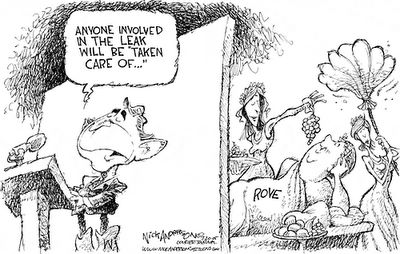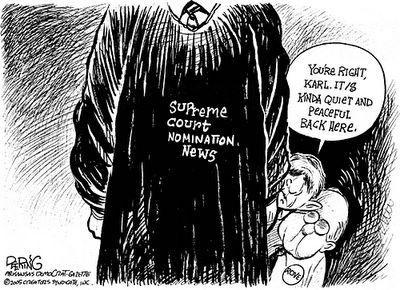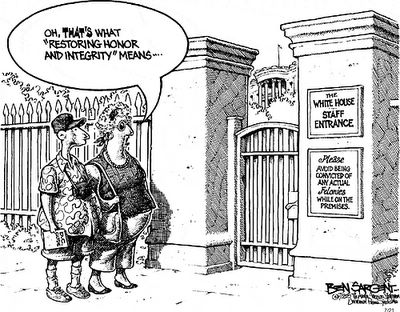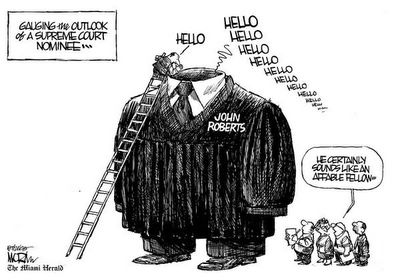An Energy Bill we can live with?
A compromise energy bill? With Republicans in charge of the White House, Senate, Congress, and soon to be Supreme Court?
House and Senate negotiators are awaiting completion of a $11.5 billion tax package before giving final approval to a sweeping compromise energy bill that Congress hopes to send to President Bush by week's end.
I envisioned an energy bill much worse than this.
Apparently the filibuster threat prompted lawmakers to craft legislation that would avoid this pesky obstacle to passing legislation.
Bush promised an energy policy early in his first term, only to find himself opposed from both parties because of his special interest obligations to insure protection for his energy cronies.
Now, five years later he still loses the initiatives that he sought for his buddies, and the Legislature seems intent on passing an energy bill without excessive controversy.
I'm all for that.
One of my biggest objections was against protection for Big Energy from MTBE claims. Their complicity in inducing chemicals into drinking water that will harm communities due to their processes should not shield them from complaints that they are responsible for diseases that result from those processes.
This energy bill will not do that.
I also oppose drilling for oil in the Alaskan Wildlife Refuge. Although proponents argued that development would be limited to isolated areas, I know that between production, distribution and processing product, massive areas would be poisoned by this process.
This energy bill will not do that.
All because the legislature wants to avoid a fillibuster.
It apears that the fillibuster, although depicted as a detriment to the democratic process, is helpful to the democratic process.
It allows us to see, in it's entirety, the effects that legislation has on our daily lives. Like the effect that drilling in the ANWR would have, even though we're in the lower 48. And the effect that culpability from MTBEs has on our population.
This bill will: :
- Provide subsidies and tax breaks for wind, geothermal and solar industries.
- Require new efficiency standards for commercial appliances from air conditioners to refrigerators.
- Extend daylight saving time by a month to save energy.
- Require utilities to meet federal reliability standards for the electric transmission grid, hoping to avoid future blackouts such as struck in the summer of 2003.
- Eases the way for more imports of liquefied natural gas by giving federal regulators final say over import terminals.
- Provides loan guarantees and other subsidies for clean energy technologies and new nuclear reactors. It would authorize a $1.8 billion program to promote clean coal technologies.
The biggest controversy is that we will give tax breaks to utility companies that invest in alternate forms of energy.
I say, let's go for it.
If they can provide us alternate forms of enegy, let's achieve that and legislate its regulation later.
In the meantime - let's get rid of coal-powered electricity, and go from there....

















